Introduction
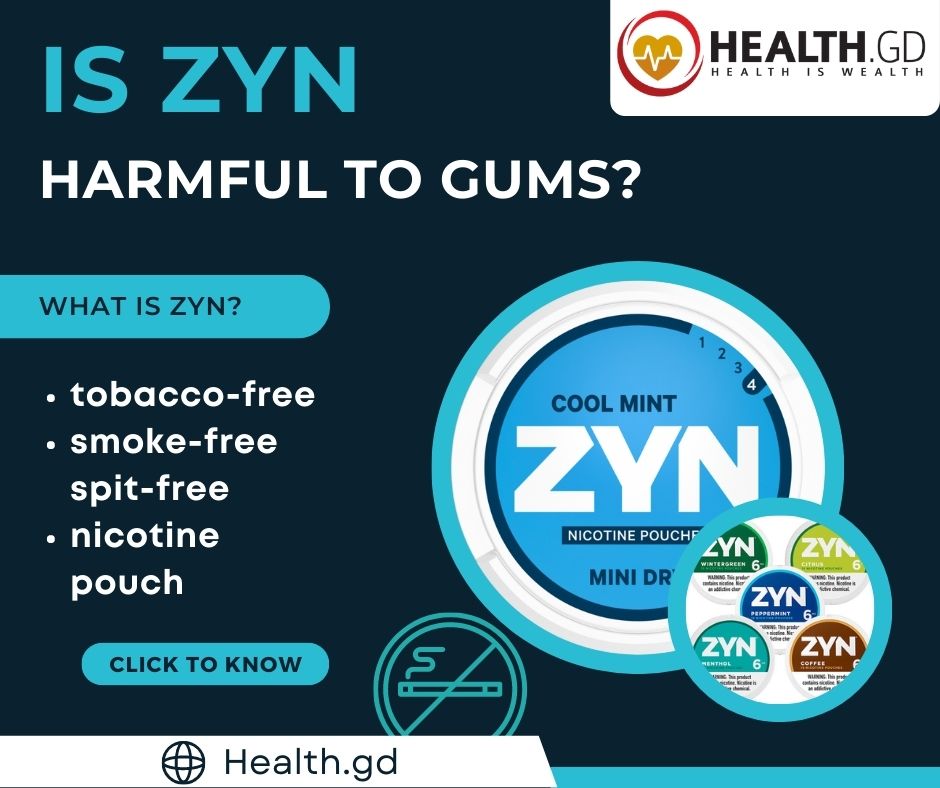
ZYN: ZYN is a tobacco-free, smoke-free, and spit-free nicotine pouch for oral consumption that resembles Swedish snus products in appearance. There is no inhalation of smoke or vapor when using ZYN. It is a white nicotine pouch that contains no tobacco. It is pretty handy; anyone over 18 can use ZYN anytime and anywhere. It tastes delicious and provides enough nicotine delivery. It is meant for adult tobacco and nicotine users and is available in various flavors and nicotine concentrations.
Is ZYN Popular?
Brands like Zyn, On!, and Velo are among the various taste options available in the new tobacco product category, known as oral nicotine pouches and lozenges. A single cigarette can contain between 8 and 20 milligrams of nicotine, with an average of 12 mg. It has been demonstrated that flavor in tobacco products attracts young people, and sales figures indicate that nicotine pouches are becoming more and more well-liked. Zyn nicotine pouch dollar sales in convenience shops climbed 470% in the first half of 2020, according to Nielsen data in an industry news piece.
Is ZYN harmful to gums?
Is ZYN harmful to gums? The answer is yes, ZYN is detrimental to the gum tissue. ZYN is nicotine and lowers blood flow and oxygen levels, impairing gum repair and ultimately leading to cell death. Using nicotine pouches raises the risk of gum disease, gum recession, leukoplakia, decay, foul breath, dry mouth, and bruxism.
1. ZYN affects blood Circulation:
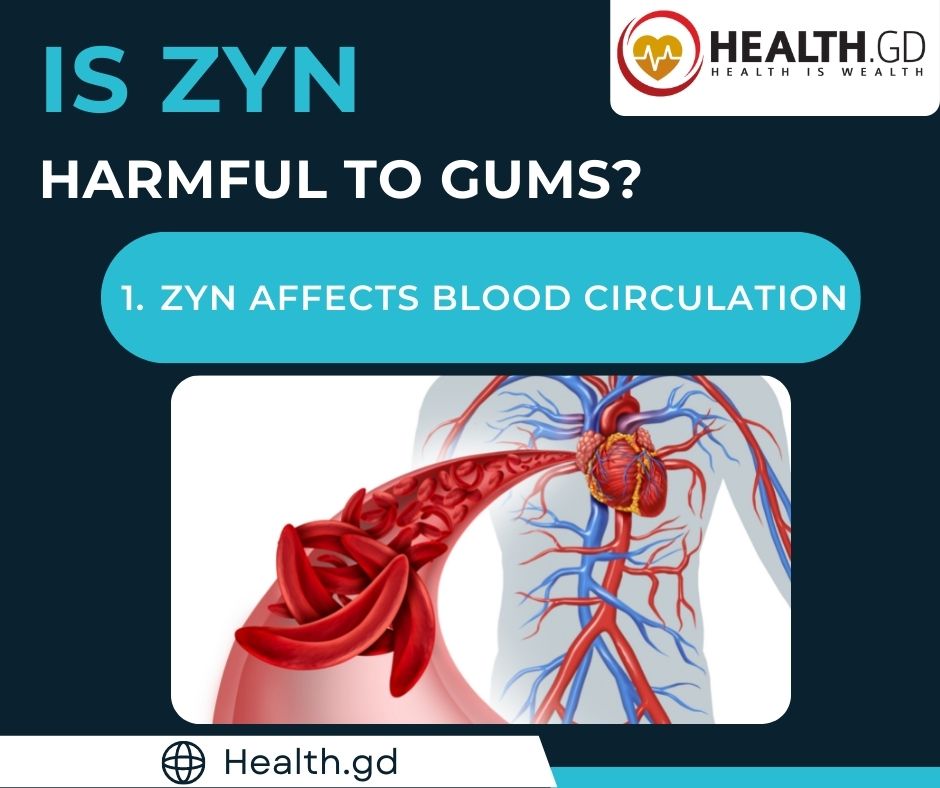
Nicotine affects blood circulation, increases heart rate, and constricts blood vessels. People with cardiac conditions, such as an irregular heartbeat or angina, should avoid nicotine products, including ZYN. We also do not advocate using the product when pregnant or nursing.
2. ZYN lowers Saliva Production:
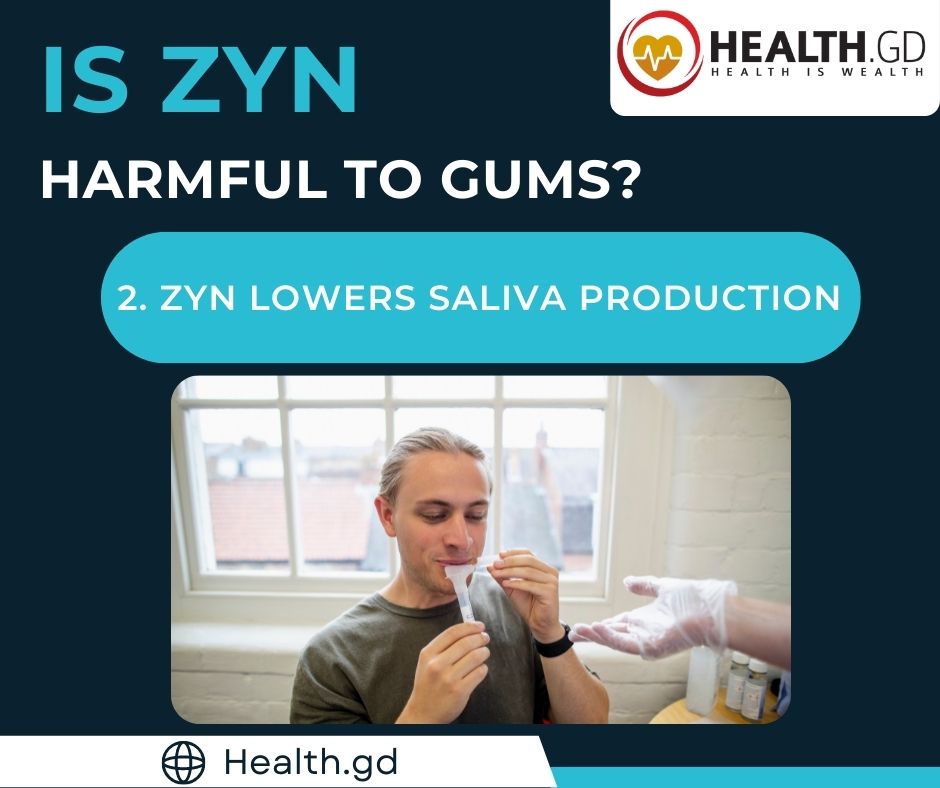
Moreover, nicotine lowers saliva production in your mouth, which can cause a slew of issues. Your mouth requires moisture to wipe away the germs and plaque on your teeth throughout the day. When germs and plaque accumulate, they can cause cavities, plaque, and tooth decay.
3. ZYN Affects the Jaw Muscles
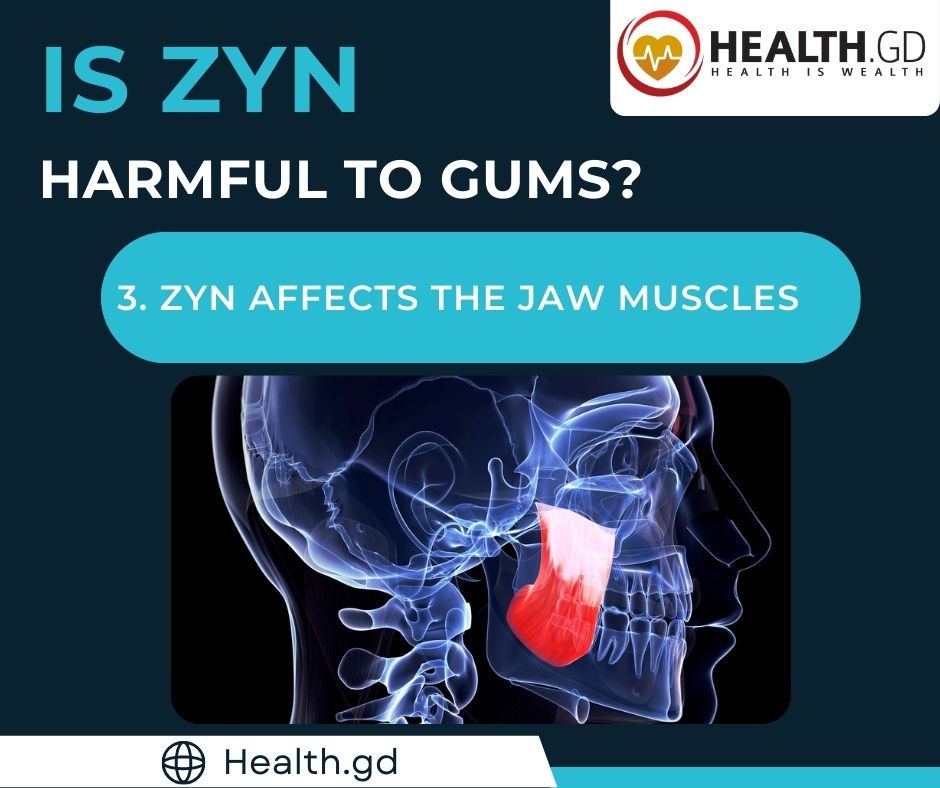
Furthermore, nicotine is a stimulant, which might affect your mouth. Stimuli can influence your jaw muscles, causing clenching and grinding, which wears down your teeth and harms the soft tissues within your mouth. It, in turn, creates major oral health problems over time.
4. ZYN Increases Gum Problems
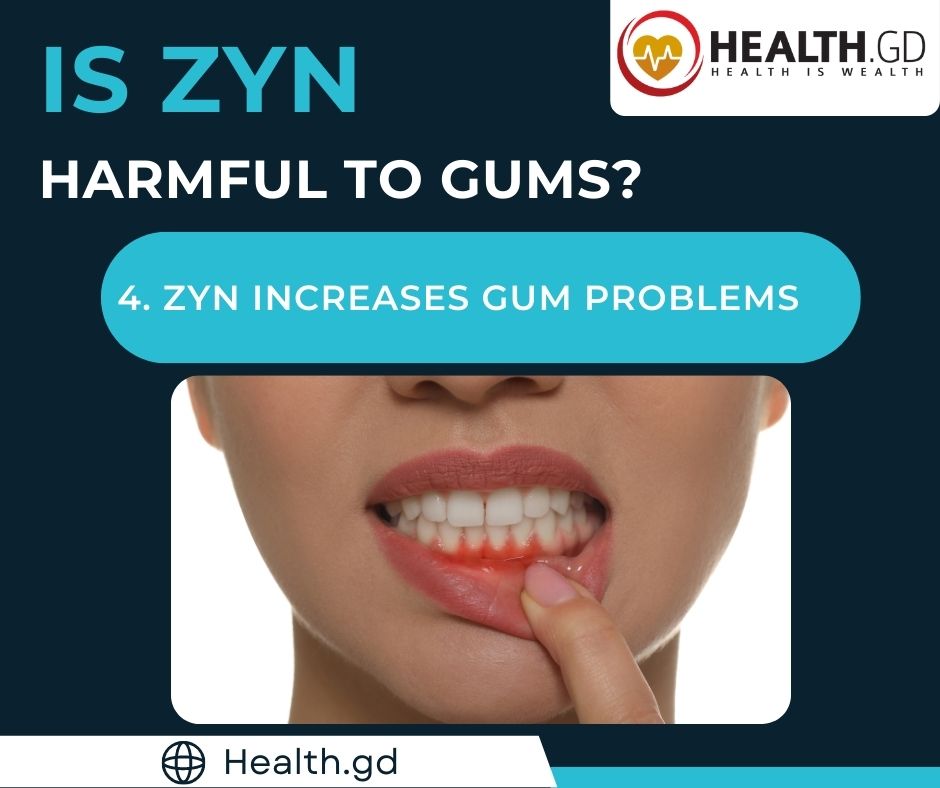
However, if the tooth’s root is exposed, the risk of tooth sensitivity, cavities, and tooth abrasion increases, and taking care of the root surfaces and gums becomes even more critical. And it all starts with proper brushing and using the right tool for the job; an electric toothbrush with a pressure sensor!
Like above, most Oral-B electric toothbrushes contain both a visual (flashing light) and a physical pressure sensor. The brush will reduce the power when it detects excessive brushing, reducing gum and tooth surface damage.
5. ZYN Causes Vasoconstriction
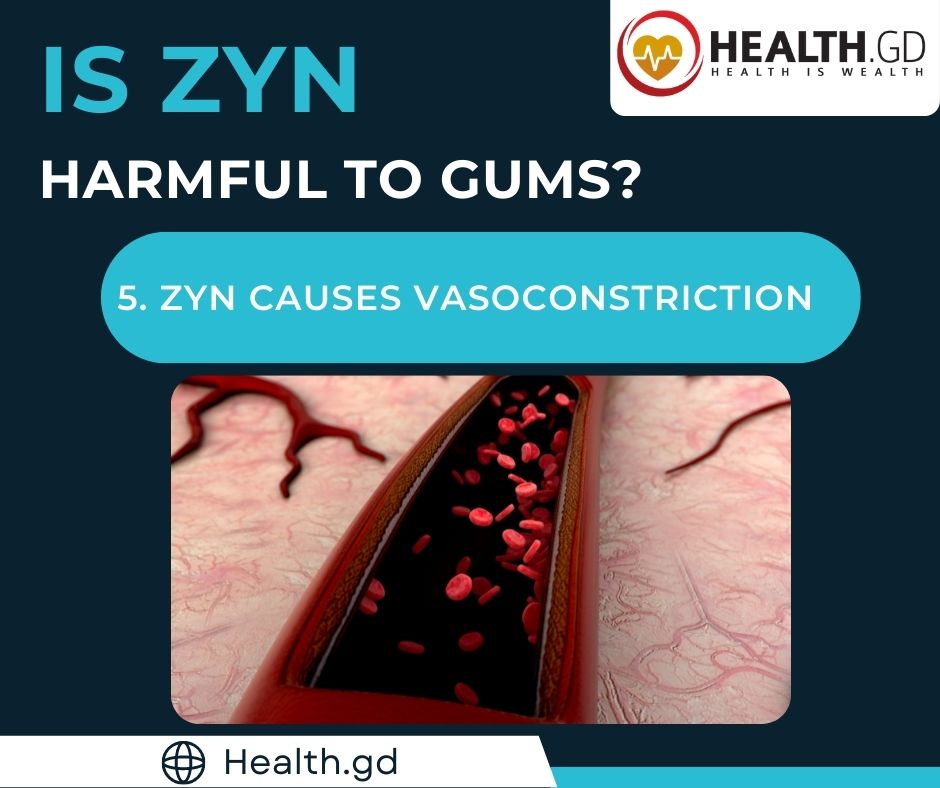
When the nicotine pouch touches the mouth’s soft tissues, it causes vasoconstriction (tightening the blood vessels, restricting blood flow). Restricting the blood flow in the gums lowers oxygen delivery to the tissues, slowing healing and eventually leading to cell death.
Is ZYN responsible for Mouth Disease?
It has not yet authorized nicotine pouches for use in nicotine replacement treatment, unlike nicotine gum or lozenges, and there are no recent studies to support their safety and efficacy. The use of nicotine is linked to an increase in oral cancer, tooth decay, foul breath, and gum disease.
Gingivitis: Following gingivitis, an infection of the gums comes with gum disease. Poor oral hygiene is the cause of gingivitis. Plaque and tartar accumulate on teeth when individuals don’t brush them. It subsequently results in gum inflammation, which may result in Gums that are bleeding (especially when brushing teeth)
- recessed gums
- red gum
- enlarged gums
- poor breath
- sensitive teeth
- poor breath
Leukoplakia: Leukoplakia in the mouth disease is more likely to develop when a regular nicotine pouch is used. Wherever the user lays their chew, dip, or pocket, these spots of grey and white emerge. These damages can not be removed, and it is too bad. Although they are painless and do not present any risks, frequent usage may cause leukoplakia, severe gum disease, or mouth cancer.
While some research shows no connection between snuff usage and gingivitis or gingival hemorrhage, certain studies show that those who use nicotine pouches have a considerably higher gingival index. The fact that nicotine reduces blood flow and oxygen levels, preventing the gums from mending and regenerating themselves, and ultimately leading to cell death, is what we do know. Even if nicotine is administered without smoking, pouches still have the same negative impact on your gum health.
Because of the vasoconstriction nicotine induces, your gum has a worse blood supply. This can result in gum recession and renders your gums additional prone to infection.
Conclusion
Although nicotine pouches don’t always cause gum disease, it’s crucial to know how to use them properly to avoid developing gingivitis.
It’s advisable to avoid using nicotine pouches if you have a cavity or have recently had oral surgery since they can cause an infection in an exposed wound.
Additionally, it would be best if you didn’t consume nicotine packets on their whole. Instead, let the gum absorb the nicotine naturally.
- Brush and floss your teeth, Twice daily.
- For assistance, see a dentist at least once each year.
- If you are currently experiencing oral health problems, such as teeth crowding, and if more plaque has to be removed, use mouthwash
Along with tooth decay and cavities, users also endure receding gum lines, poor breath, ruined gum tissues, and reducing gum lines. The exposed tooth root is caused by the receding gums, which might lead to tooth loss. Many consumers buy smokeless tobacco produced by several producers because they believe it would help them stop smoking, but this is not always true.




